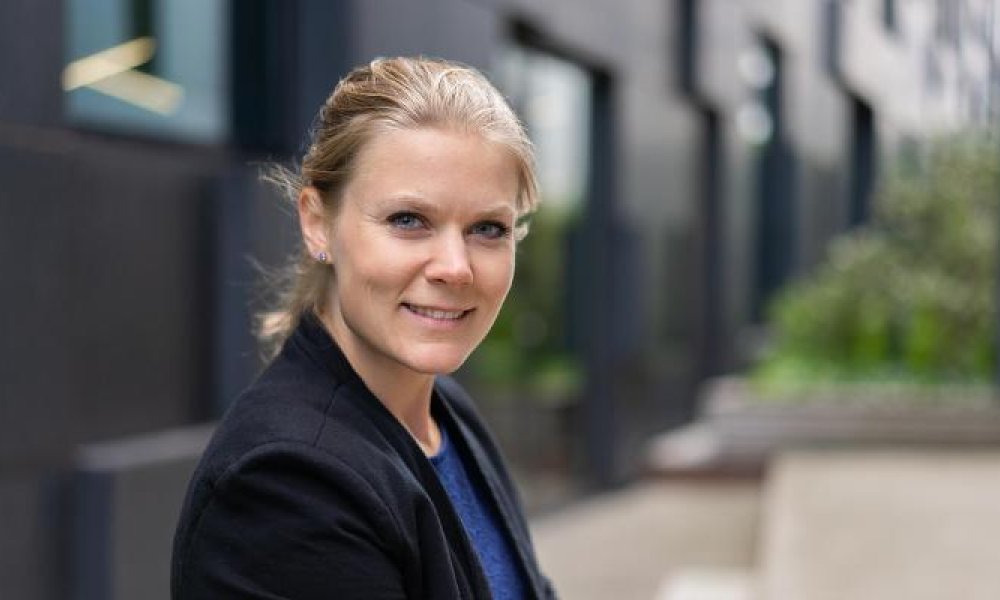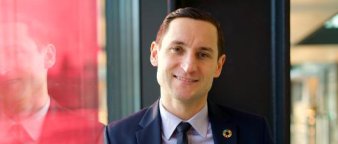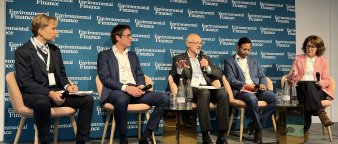What is the role of trust in your work as a portfolio manager?
– Trust is at the core of what we do, and it is at the core of Storebrand's business model. When clients decide to work with us, they are relying on us in decisions that impact their money. And we manage this money for our clients' future well-being, by investing in companies that we believe offer the best opportunities.
Another aspect of our business where trust becomes important concerns our relationship with current and potential investee companies. We as the portfolio managers need to trust the information that we get from companies. Only then can we make the best possible investment decision.
For the Solutions teams, a portfolio company needs to present solid financial performance and a solution to an environmental or social problem. How do you trust that a company is doing both?
– One problem that we need to pay close attention to is greenwashing. This usually happens when companies overstate their sustainability impact and try to ride the wave of sustainability orientation that clients and portfolio managers have. To make sure we do not fall prey to greenwashing, we need to ensure that the company is accurately describing and communicating its impact, both qualitatively and quantitatively. This requires us portfolio managers to really dive deep into the core of the company's product or service and see whether their future ambitions, targets, and milestones are actually aligned with reality.
This is one of my favorite parts about being a portfolio manager for Solutions: I enjoy analysing and evaluating a company not just by looking at its financial statements but also through a deep dive into its business model and proposed technology.
This internal research requires strong collaboration between different portfolio managers of our Solutions team. Most of our themes involve a company's product or services addressing more than one problem, so it really helps when I talk with my colleagues in evaluating a company's health and future. We also draw on the expertise of other Storebrand teams and external networks.
What about clients, how do you establish trust with them?
– The fundamental tool is delivering what we say we will deliver. Also maintaining our integrity, which is the most important asset that we have. We have honest communication with our clients: we explain our investment process, showcase how we think and what our underlying assumptions are, and explicitly state what we look for both in terms of sustainability and financial viability. That way, our clients can be sure we have a replicable, resilient process that can be maintained over time, and which presents value beyond return.
Value beyond return is the extra mile we go when it comes to ensuring solid long-term financial returns alongside sustainability-related considerations. We focus on maintaining the integrity of our sustainable investing perspective through active ownership strategies, like engaging with companies and following up with them during their reporting seasons. Maintaining the value, including and beyond financial returns, bolsters the confidence that our clients place on us.
What is inspiring you these days?
– I have been spending some time looking into artificial intelligence. Like most, the topic intrigues me as well. I think we are just on the verge of seeing what we can do with AI, and as a portfolio manager it is fascinating to follow how our portfolio companies are integrating these tools into their own operations.
While AI promises more efficient management of resources and of distribution of energy and products, as well as more tailor-made services, I am still cautious about the ethical implications. However, we are also seeing positive signals on this too: In the US, where many leading tech companies are based, the Biden administration met with the leading AI companies in late July to launch voluntary commitments on ensuring safety and impartiality of AI products. It is inspiring to see that potential pitfalls of this quickly developing technology are addressed.
Personally, I am getting inspired by nature reserves these days. I spent most of my summer in the Norwegian mountains hiking and I was able to clearly see and feel the importance of protecting nature and biodiversity. Spending time in nature and appreciating the wilderness made me realise once again how important it is to protect our ocean and land ecosystems.







